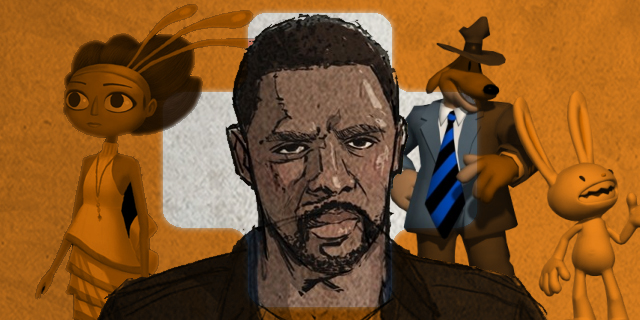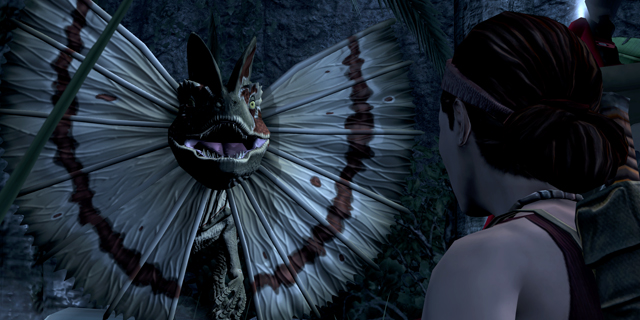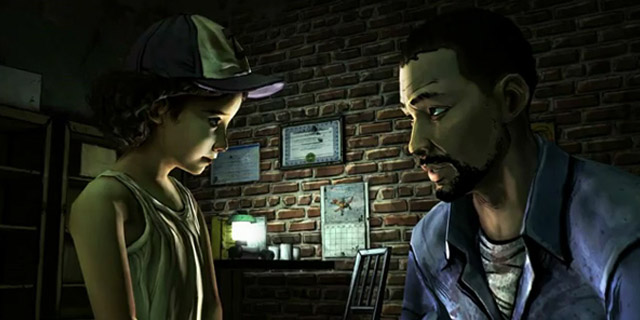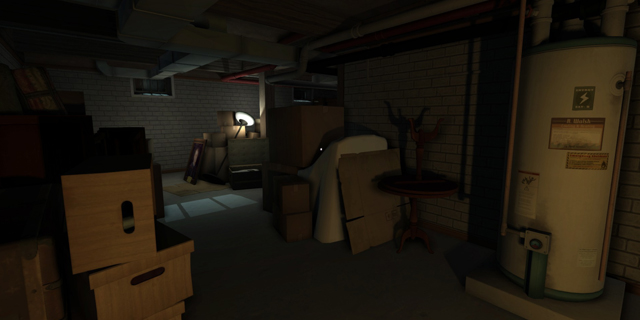
There was once a time when people considered the adventure genre to be dead and buried. We still saw various releases, but only a few were noteworthy enough to merit more than a casual glance. This was also around the time I first started getting into adventure games, thanks to a little title known as Grim Fandango. From there, I went back and explored the various LucasArts and Sierra titles I was never able to play when they initially released. I was hooked, even though I fell in love with a genre during its seemingly-inevitable decline.
Despite its critical acclaim, Grim Fandango did poorly for LucasArts, and led to the company’s decision to cease development of all of its in-progress adventure titles. Just when I thought I was getting into a genre full of endless potential, I realized many had abandoned it. The traditional adventure game seemed long gone at that point, even with a small handful of promising releases like Syberia and The Longest Journey.
Thankfully, companies like Telltale Games emerged from the rubble and brought new life into the genre once more. The traditions of old remained intact with its revival of Sam & Max and Monkey Island, among others. It quickly gave me hope in a genre that seemed like it may never return, and also paved the way for indie developers and larger companies alike to take a crack at it. This led to what I consider to be not only the best time for adventure games, but also the most diverse.

While traditional adventure games still exist (and the demand for them is high) thanks to small developers like Wadjet Eye, the genre as a whole, like many before it, has changed dramatically. These titles still heavily focus on writing and telling a story, but the format in which these elements are presented have become something more. This brings me back to Telltale, the developer I most associate with the modern adventure game. It has done a lot to keep the genre alive and move it forward in recent years, despite some less-than-stellar results along the way.
Telltale’s efforts to break free from the traditional adventure game model started with Jurassic Park. It certainly had interesting ideas, many of which were seen in Telltale’s future projects, but there were a number of issues that held it back. To put it bluntly, it was an awful game and an even worse use of a license that held plenty of potential. Many had lost faith in Telltale after that release, but it was only a few months later when its spotlight would shine bright once again.
The Walking Dead is considered by many to be one of the best releases of 2012, and the one game that comes to mind immediately when thinking about the evolution of the genre. It still maintained a lot of traditions, including an inventory of items used to solve a variety of puzzles, but it implemented both player agency and action elements in a way that didn’t feel forced. While it’s not the first adventure game to attempt including meaningful player choices or action sequences, it’s the first that does it remarkably well. Yes, the action itself was far from great, but the integration of this element was excellent.

I’ve already talked about The Walking Dead plenty, but it is essentially the one game that dramatically shifted Telltale’s development in a positive way. The company’s original format was getting stale despite working with some excellent properties (such as Back to the Future), so it was nice to see it break away from that with Jurassic Park and The Walking Dead. It has not only changed one of the biggest adventure game companies’ style, it has also given a whole new audience a chance to experience adventure games for the first time.
With the second season of The Walking Dead and The Wolf Among Us in progress, it’s clear there’s no turning back for Telltale. It has opened the door to a new style of adventure games, one that allows for the genre to grow in ways it couldn’t before. These titles still cling to their roots, yet also manage to forge their own paths, giving way to an entirely different take on a genre that has been around for quite some time. It’s hard not to look at Telltale’s success and see the inevitable rise of imitators, but even if that does become a new trend, I only see it as a new potential future for a genre I love.
Of course, there are other takes on adventure games that have popped up over time, although they focus less on mechanics and puzzle solving and more on narrative. I’ve talked in depth about Gone Home and other narrative-focused games, such as Dear Esther, but these titles provide yet another take on the adventure genre. Even if these titles forego the heavy focus on inventory management and puzzle-solving, they still provide memorable experiences that seem more welcoming to those unable to get into traditional adventure titles.

Expanding on a genre is always a healthy thing, even if some find these different takes on the familiar to be off-putting. I still think game genres are becoming less important as time goes on, but it’s nice to see all of them take the necessary evolutionary steps towards becoming broader. It may not happen with every genre, yet even those steeped in tradition can change for the better.
Best of all, Double Fine’s success with the Kickstarter for its adventure title, Broken Age, proves there is still a big audience for conventional adventure games. We’ll always have people afraid of change, especially if it involves something they care deeply for, but adventure games will only become more varied as time goes on, not less. We may see more Telltale-style titles and exploration-focused games, but there will always be those developers sticking to what we consider to be time-honored practices.
In this industry, even the most age-old game genres can find ways to evolve, while still staying true to what made them so popular in the first place. As someone who experienced the best and worst adventure games had to offer as well as its “demise” in a short period of time, I find it hard not to celebrate developers that do anything they can to bring the genre back to its full potential. Let’s hope the future continues to be bright for these games and the many teams that make them possible.



















